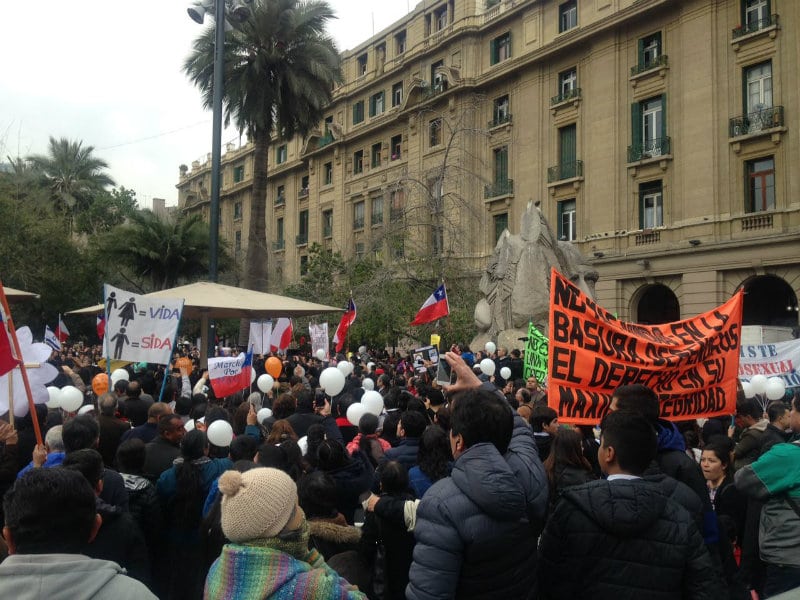
SANTIAGO – Dozens of people marched on Plaza De Arms in capital Santiago to protest against a constitutional measure that would end Chile’s absolute ban on abortions in heavily Roman Catholic nation.
Chile court rules in favor of abortion in limited cases
The Constitutional Court had on Monday accepted the constitutionality of a measure to legalize abortions when a woman’s life is in danger, when a fetus is not viable and in cases of rape.

President Michelle Bachelet said she will sign the measure that passed Congress this month. It will end Chile’s stance as the last country in South America to ban abortion in all cases.
Chile: Poll shows 70% back easing of abortion ban
“Today, women have won, democracy has won, all of Chile has won,” said Bachelet, a physician and former head of U.N. Women.
¡Día histórico para las mujeres de Chile! Con la aprobación de las #3causales, avanzamos en un derecho básico para nuestra dignidad.
— Michelle Bachelet (@mbachelet) August 21, 2017
Court secretary Rodrigo Pica said details of the decision, which cannot be appealed, would be released on Aug. 28 (Monday).

Conservative lawmakers had filed an appeal with the court to halt the law, arguing it was unconstitutional.

Chile legalized abortion for medical reasons in 1931, but the procedure was then banned under all circumstances in 1989 during the dictatorship of Gen. Augusto Pinochet.

Women found guilty of having abortions now face prison terms of up to five years. Still, thousands of illegal abortions are performed every year. Most involve black-market purchases of the drug misoprostol to end first-trimester pregnancies.
Those who can afford to sometimes seek abortions in neighboring Argentina or beyond.

The bill’s passage comes as views continue to shift on social issues once considered taboo in the heavily Roman Catholic nation that only began to allow divorce in 2004. Congress recognized civil unions for same-sex couples in 2015.
Chile is one of four countries that currently prohibit abortion in all cases, though a few others have rules so restrictive that they amount to de facto bans.



